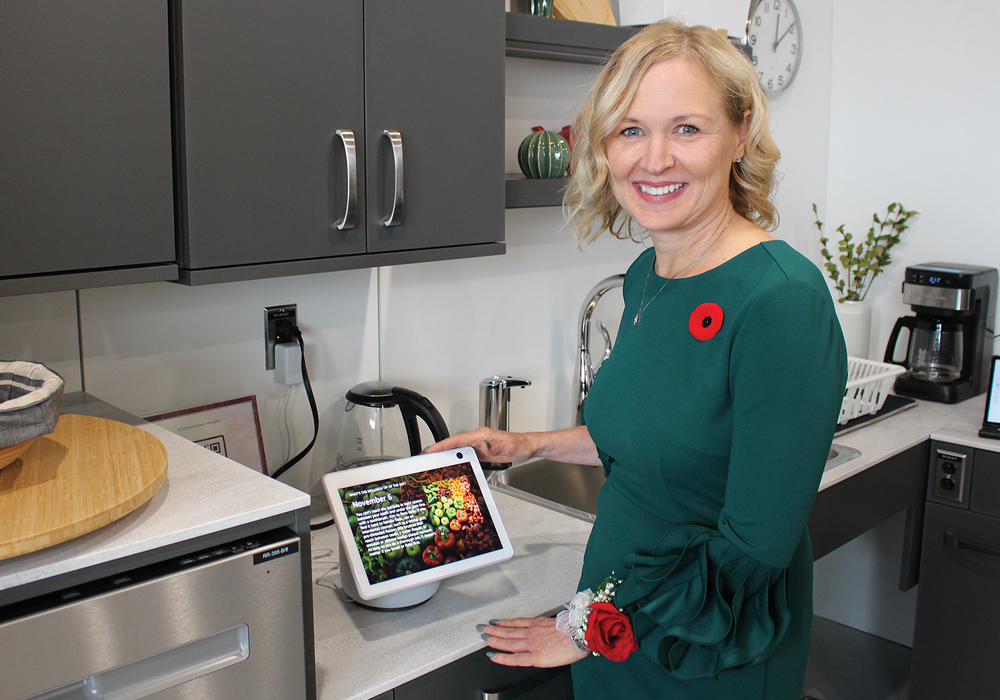
Jacquie Ripat [BMROT/92, M.Sc./98, PhD/11], professor of occupational therapy, has been appointed the first Endowed Chair in Technology for Assisted Living at the College of Rehabilitation Sciences.
The $3-million research chair, announced in November, brings together Health Sciences Centre (HSC) Foundation donors’ contribution of $1.5 million and UM donors’ contribution of $1.5 million to support leadership, scholarship and mentorship in technology for assisted living.
The emerging field uses computer technology, artificial intelligence and other digital tools to improve quality of life. Current efforts focus on assisting those who are recovering from surgery, those living with a chronic illness or disability, and older adults who want to live independently.
The chair has a five-year term and is the first endowed chair to be based in the College of Rehabilitation Sciences.
Ripat, who is also vice-dean (academic affairs) of the Rady Faculty of Health Sciences, has conducted research on how users of assistive technology participate in their occupations and communities and interact with their surroundings.
Customized technology can serve as a powerful catalyst for inclusion, empowerment and participation for people at all stages of life, she said.
“The barriers faced by people are not insurmountable when we harness the potential of cutting-edge technology.”
Ripat was involved in developing the high-tech “smart suite” model apartment that opened in 2022 at HSC’s rehabilitation hospital. It incorporates “smart” features such as height-adjustable kitchen appliances; lighting, entertainment and security features that can be controlled by a smartphone or tablet; and windows that change from clear to opaque with a simple flick of a switch.
It’s a place where patients can try assisted-technology solutions and identify those that work best for them, the professor said. The suite is also used for teaching and research.
“I believe we are just on the cusp of the technological revolution,” Ripat said. “In the coming years, we can expect to witness the widespread adoption of self-driving cars, increased use of social robots, augmented and virtual reality to address social isolation, and the integration of sensors into homes and even clothing to provide monitoring and support.”
Peter Nickerson [B.Sc.(Med.)/86, MD/86], dean of the Rady Faculty of Health Sciences, said these research advancements and emerging technologies will eliminate many barriers to independent living.
“We are healthiest and happiest when we can be in the comfort of our homes, rather than living in institutional care,” Nickerson said. “This is now becoming a reality for many more people than ever before.”
Jonathon Lyon, president and CEO of the HSC Foundation, said there is an urgent need to develop technology that will help patients receive virtual care, stay connected and live independently.
Dr. Reg Urbanowski, dean of the College of Rehabilitation Sciences, welcomed the establishment of the research chair.
“This initiative is about using technology to enable the best in health care and the best – and latest – opportunities for aging in place,” he said.
“Technology-assisted living research will enable people with activity limitations or participation restrictions to stay meaningfully engaged in their home and community environment.”
BY ALAN MACKENZIE
